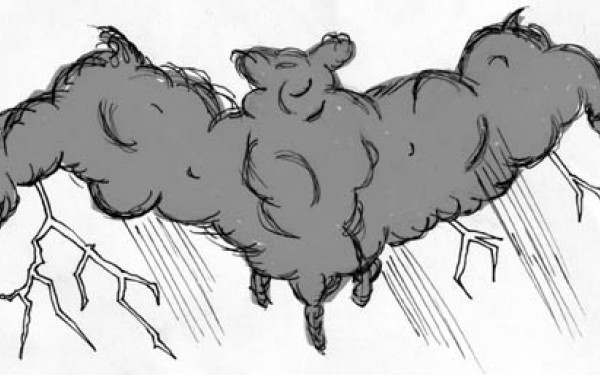Sentimentalists Fools
Skibsrud’s Giller-Winning Debut More Than Meets the Eye
Much like winning a shootout against the fastest gun in the Old West, winning the Scotiabank Giller Prize is a bit of a risky move. It can put a bit of a target on your back; all of a sudden, every hack out there who fancies himself a big shot is gunning for you.
In light of that, it’s important not to be too hard on Johanna Skibsrud’s The Sentimentalists. There will be some—many, even—who will criticize the book for what it isn’t, rather than what it is. They will come expecting the best Canadian book of the past year and all the pomp and circumstance they associate with that idea and find a small, quiet story set in small, quiet places instead. They will clamour for their money back. Don’t let them sway you.
The Sentimentalists was first released by Gaspereau Press in the fall of 2009, and recently re-released as a mass-market paperback by Douglas & McIntyre in the wake of Skibsrud’s unexpected win. The story is about a 30-year-old Canadian woman and her search for meaning as her father—a wisecracking, crossword-puzzle-solving, alcoholic Vietnam vet—slowly dies of lung cancer in the fictional town of Casablanca, Ont.
To be clear, this book is not for the faint of art. The work it most reminded me of, style-wise, was James Joyce’s A Portrait of the Artist as a Young Man. Like Portrait, much of the narrative is set in memory, and the text is filled with reams of vague philosophical sentences that many readers will find hard to parse on the first try, with passages like, “I think now that that’s really the most—the best—we can do: answer the questions that pose themselves to us, and describe, if only to ourselves, the things that we have loved, and believed in, and the actions that we have or would have liked to have taken, and will take now, and do take, over and over again, in the quiet parts of our minds.”
Nevertheless, there is a story worth telling here that Skibsrud has told in a rather skillful way, managing to avoid the primum movens of the drama essentially right up until the book’s epilogue. The story up until then, worthwhile and moving to begin with, takes on a whole new appearance as the reader has to re-interpret its emotional significance in light of new, heart-rending information.
If you like your books to be blockbusters, or if the promise of Vietnam war scenes entices you, perhaps you’d be better off skipping The Sentimentalists—ditto if you have trouble controlling your expectations around award-winning fiction.
But if you’re willing to take the novel for what it is—a deeply touching account of the effects of personal tragedy on family, and the incomprehensible ways sadness weaves its way into our lives—you should be able to get along quite nicely with The Sentimentalists.
This article originally appeared in Volume 31, Issue 16, published November 30, 2010.

__611_700_90.jpg)





__600_375_90_s_c1.jpg)
__600_375_90_s_c1.jpg)